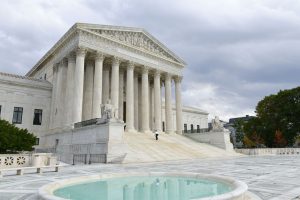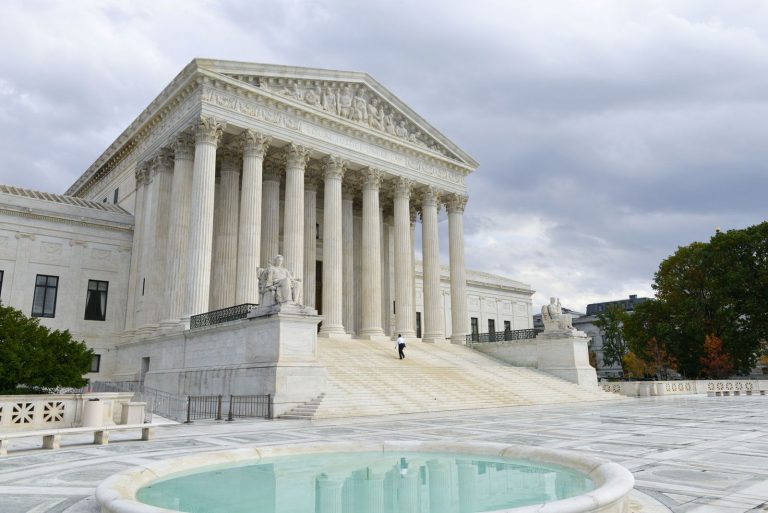On July 17, 2025, the Florida Supreme Court issued a final decision upholding the state’s congressional map approved under Governor Ron DeSantis. The 5–1 ruling solidifies a redistricting plan that has drawn significant controversy and legal challenges, particularly over its impact on Black voter representation in North Florida.
The majority opinion, written by Chief Justice Carlos Muñiz, concluded that the plaintiffs—led by the Black Voters Matter Capacity Building Institute—did not meet the legal burden to invalidate the new map. The decision affirms that Florida’s current congressional boundaries will remain unchanged through the 2026 midterm elections and likely for the rest of the decade.
Central to the dispute was the dismantling of the former 5th Congressional District, which stretched from Tallahassee to Jacksonville and had been configured to give Black voters a majority. That district had been represented by Democrat Al Lawson, a Black lawmaker who lost reelection in 2022 after the map was redrawn.
In his opinion, Chief Justice Muñiz emphasized that the Equal Protection Clause of the U.S. Constitution outweighs state-level redistricting requirements when they conflict. Florida’s Fair Districts constitutional amendment prohibits changes that diminish minority voting power, but Muñiz wrote that compliance with federal equal protection standards must take priority.
“The Legislature’s obligation to comply with the Equal Protection Clause is superior to its obligation to comply with the Non-Diminishment Clause as interpreted by our Court,” he wrote. “The plaintiffs did not prove the possibility of complying with both the Non-Diminishment Clause and the Equal Protection Clause in North Florida. Therefore, they did not meet their burden to prove the invalidity of the Enacted Plan.”
The ruling drew sharp criticism from advocacy groups and civil rights organizations. Genesis Robinson, Executive Director of Equal Ground, one of the groups challenging the redistricting map, condemned the decision. “Today is another dark day in the history of Florida,” he said. “The Florida Supreme Court has turned its back on Black voters, the state constitution, and the fundamental principles of representative democracy.”
Robinson further argued that the court’s decision sends a troubling signal about the fragility of constitutional protections for minority voters. “By allowing a map that clearly diminishes Black voting power to stand in a 5–1 decision, the Court has sent a chilling message: the constitutional rights of Black Floridians are negotiable.”
The legal challenge did not go to trial. Instead, both sides—the plaintiffs and the state—agreed to have the court decide the matter solely based on the legality of removing the previous configuration of the 5th Congressional District.
Governor DeSantis had objected to the earlier district map, which he argued constituted an unconstitutional racial gerrymander. He vetoed the Legislature’s original proposal that preserved a similar configuration and instead submitted his own map. That version, which the Legislature ultimately adopted, eliminated the former majority-Black district and restructured the region in a way that made it significantly more favorable to Republican candidates.
As a result of the new map, Republicans gained a net of four congressional seats in the 2022 election, including the seat Lawson lost to Republican Rep. Neal Dunn. With the court’s latest ruling, the redistricting map remains settled—at least for now.

Sarah Mitchell is a bestselling novelist recognized for her insightful and emotionally resonant stories that explore the complexities of human relationships. Originally from Denver, Colorado, Sarah grew up in a family of teachers who nurtured her curiosity and love for storytelling. She studied psychology at Stanford University, where she became fascinated by the intricacies of human behavior—an interest that would later shape her writing career. Sarah’s novels are praised for their nuanced characters, intricate plots, and ability to capture the subtle tensions that define love, friendship, and family ties. Her breakthrough novel, The Spaces Between Us, became an instant bestseller, lauded for its honest portrayal of strained family relationships and the fragile bonds that hold people together. Since then, she has published several works that continue to captivate audiences around the world. Outside of her writing career, Sarah is passionate about mental health advocacy and often partners with organizations to promote awareness and support for those struggling with emotional well-being. Her personal life is quieter—she enjoys hiking in the Colorado mountains, practicing yoga, and spending time with close friends. With each new book, Sarah Mitchell cements her reputation as a writer who illuminates the beauty and struggles of human connection.








